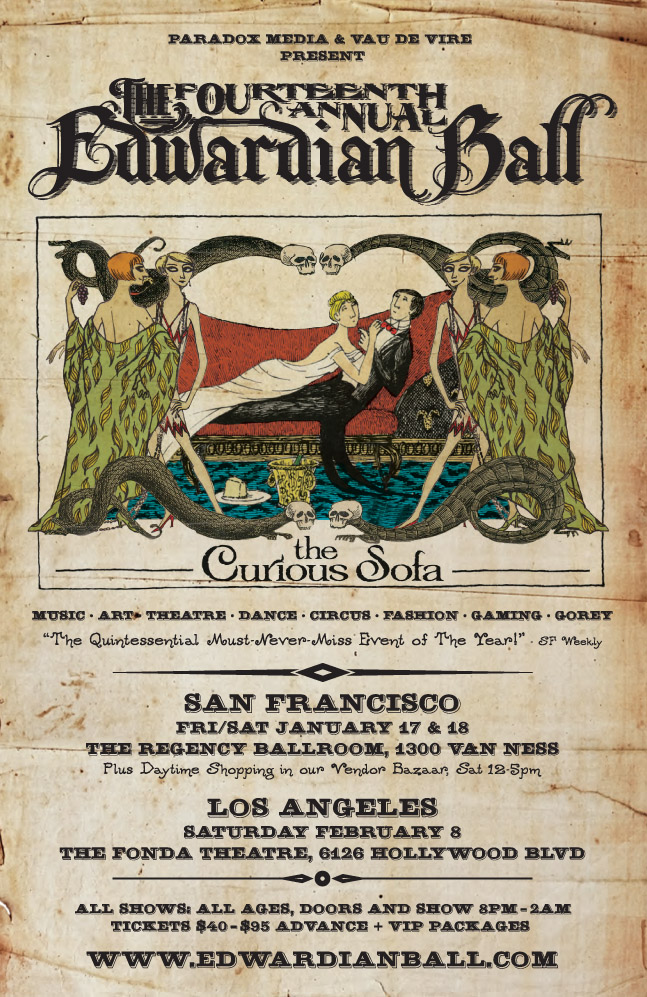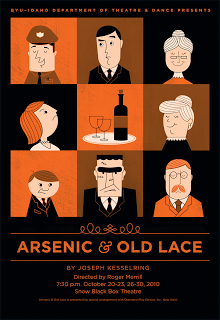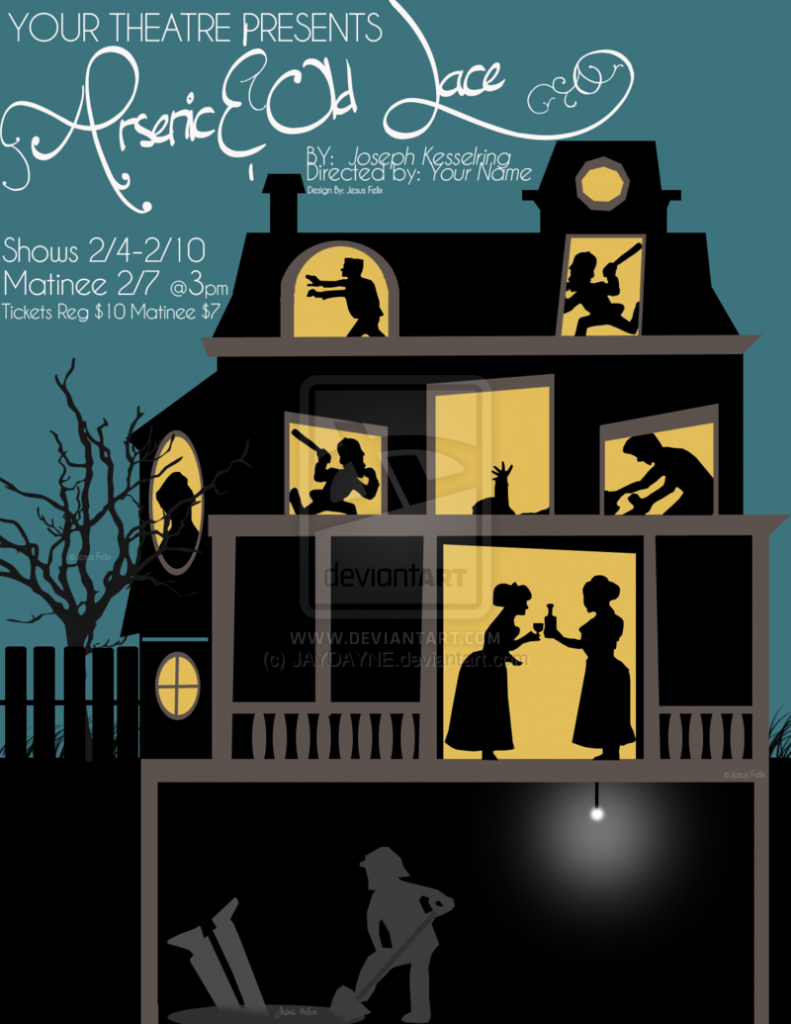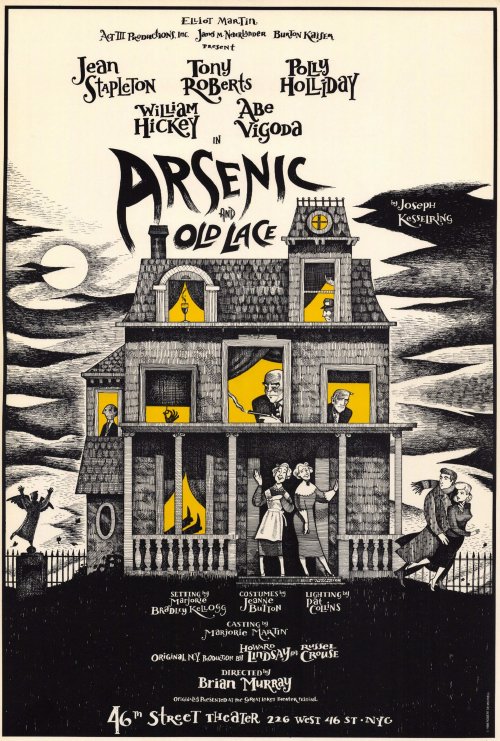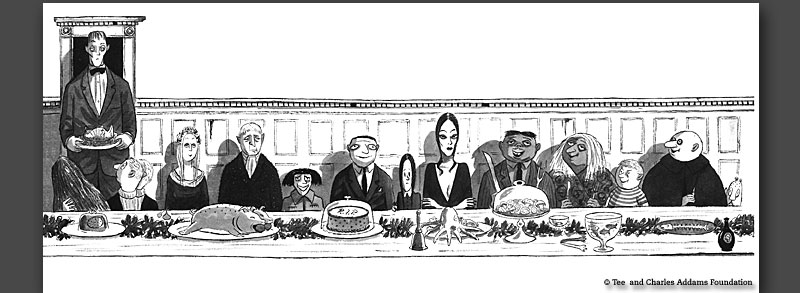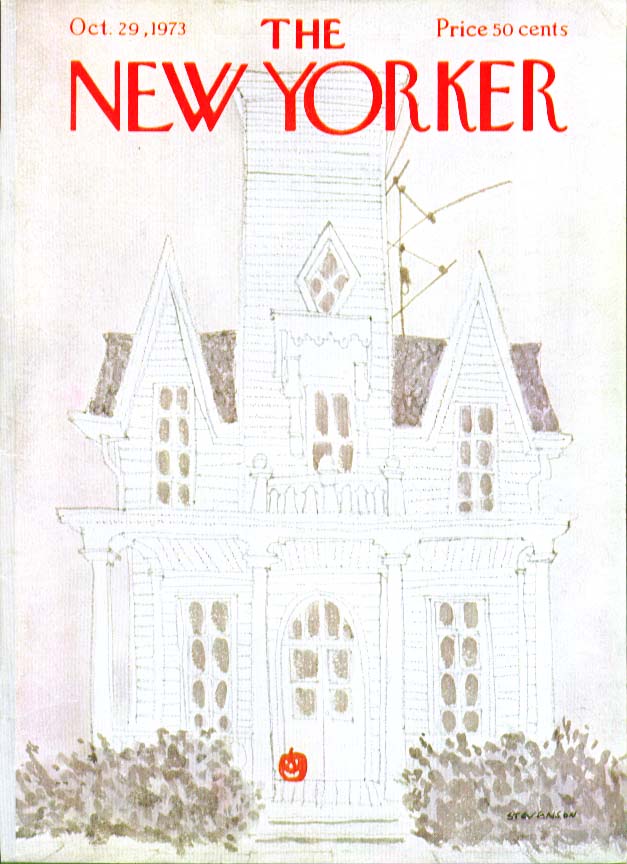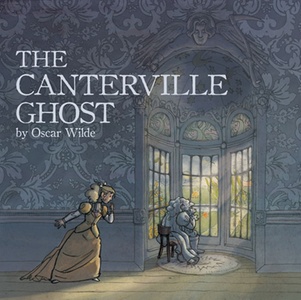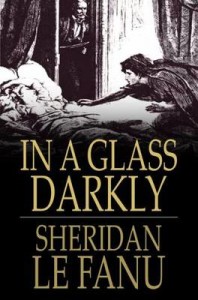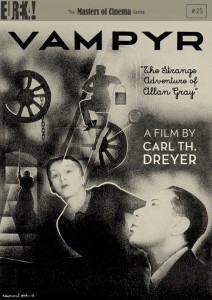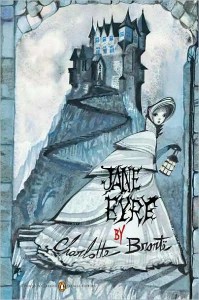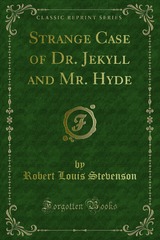Click image to view site and information
Tag Archives: Gothic
Arsenic & Old Lace a reminder against overindulgence
The day after Thanksgiving you may feel yourself in need of savory sustenance of a different variety, I can recommend Arsenic & Old Lace as a lovely alternative to raiding the fridge. The classic Frank Capra film starring Cary Grant, Peter Lorre, Raymond Massey and Priscilla Lane is a favorite to watch while waiting for the waistline to return to its usual proportion. Instead of posting the usual shots of the movie, I present you with some fun visuals in the form of playbills. Enjoy and don’t forget overindulgence can be deadly – or at least really uncomfortable.
Click each image for its source.
Family, Friends, Feast
I know its a stressful day what with the family and all, but it can be fun too. Hope its a great day for you all and many thanks to everyone from me and my family for visiting the site. I am thankful for the opportunity to share.
Image source Tee and Charles Addams Foundation
Mirth and Musings Part 7
The weather here on the west coast is definitely Fall-like at last, chill temperatures and brisk gusts of wind remind me of why I prefer this time of year. Time to break out the scarves and mittens, flannels and fuzzy slippers. Just to make cozying up that much more enjoyable. The approaching Thanksgiving holiday makes me pause and reflect, as I still see pumpkins decorating porches and sills and tabletops. We always save one or two from October to enjoy through November – a bright orange reminder – it’s interesting how the pumpkin, the idea of it, transitions from the herald of giving treats to the herald of giving thanks. Many of us will close the holiday with that slice of spicy sweetness. It’s a fitting way to bookend Autumn. Enjoy this New Yorker cover from 1973, a house simply celebrating the season.
New Yorker Magazine, Stevenson, 1973
The Red Penny Papers
Boo
Standing on the step to receive them was an old woman, neatly dressed in black silk, with a white cap and apron. This was Mrs. Umney, the housekeeper, whom Mrs. Otis, at Lady Canterville’s earnest request, had consented to keep on in her former position. She made them each a low curtsey as they alighted, and said in a quaint, old-fashioned manner, “I bid you welcome to Canterville Chase.” Following her, they passed through the fine Tudor hall into the library, a long, low room, panelled in black oak, at the end of which was a large stained-glass window. Here they found tea laid out for them, and, after taking off their wraps, they sat down and began to look round, while Mrs. Umney waited on them.
Suddenly Mrs. Otis caught sight of a dull red stain on the floor just by the fireplace and, quite unconscious of what it really signified, said to Mrs. Umney, “I am afraid something has been spilt there.”
“Yes, madam,” replied the old housekeeper in a low voice, “blood has been spilt on that spot.”
“How horrid,” cried Mrs. Otis; “I don’t at all care for bloodstains in a sitting-room. It must be removed at once.”
The old woman smiled, and answered in the same low, mysterious voice, “It is the blood of Lady Eleanore de Canterville, who was murdered on that very spot by her own husband, Sir Simon de Canterville, in 1575. Sir Simon survived her nine years, and disappeared suddenly under very mysterious circumstances. His body has never been discovered, but his guilty spirit still haunts the Chase. The bloodstain has been much admired by tourists and others, and cannot be removed.
Oscar Wilde
The Canterville Ghost, 1887
Something to sink your teeth into
This is the tale of the strange adventures of young Allan Gray, who immersed himself in the study of devil worship and vampires. Preoccupied with superstitions of centuries past, he became a dreamer for whom the line between the real and the supernatural became blurred. His aimless wanderings led him late one evening to a secluded inn by the river in a village called Courtempierre.
It was an eerie moonlit night. Lights and shadows, voices and faces seem to take on hidden meaning. Allan Gray felt a sinister force descend upon him. In vain he fought the terror that seized him, and fear of things he could not name haunted his restless sleep.
What was going on? What terrifying secret was unfolding? Allan Gray felt certain of one thing: A soul in mortal distress was crying out for help, and a voice within urged him to heed that call…
Excerpt (scroll text) from the 1932 movie Vampyr
directed by Carl Theodor Dreyer
Based on the short stories In A Glass Darkly, 1872
by Sheridan Le Fanu
A window seat, a cup of tea, and thou…
“God will punish her. He might strike her dead in the midst of her tantrums, and then where would she go? Come, Bessie, let us leave her. Say your prayers, Miss Eyre, for if you don’t repent, something bad might come down the chimney and fetch you away.” They left, shutting the door, and locking it behind them.
The red-room was one of the largest and grandest bedrooms in the mansion, yet very seldom slept in. The bed rested on massive pillars of mahogany and was hung with heavy red curtains. The two large windows had blinds that were always drawn down; the carpet was red; the walls were a soft pink. A cushiony easy chair was white, like a pale throne. The room was chilly because it seldom had a fire; it was silent, because it was remote from the rest of the house; it was solemn, because it was so seldom entered. The secret of the red-room, the spell which kept it so lonely in spite of its grandeur, was this – here, in this chamber, my uncle, Mr. Reed, breathed his last breath. Here his coffin was carried by the undertakers’ men. And since that day, nine years ago, a sense of dreary respect had kept visitors away. My seat, to which Bessie and the bitter Miss Abbot had left me riveted, was a low ottoman near the marble fireplace. I was not quite sure whether they had locked the door. When I dared to move, I got up and went to see. Alas, yes. No jail was ever more secure.
Returning to my seat, I passed by the mirror. I glanced at it, and the strange little girl gazing back at me, with a white face and arms and glittering eyes of fear, had the effect of a real ghost. It was like one of the tiny phantoms, half-fairy, half-imp, that Bessie’s evening stories described as coming out of the moors. I returned to my stool.
Charlotte Brontë
Jane Eyre, 1847
Ethos, Logos, Pathos…
It was on a dreary night of November that I beheld the accomplishment of my toils. With an anxiety that almost amounted to agony, I collected the instruments of life around me, that I might infuse a spark of being into the lifeless thing that lay at my feet. It was already one in the morning; the rain pattered dismally against the panes, and my candle was nearly burnt out, when, by the glimmer of the half-extinguished light, I saw the dull yellow eye of the creature open; it breathed hard, and a convulsive motion agitated its limbs.
How can I describe my emotions at this catastrophe, or how delineate the wretch whom with such infinite pains and care I had endeavoured to form? His limbs were in proportion, and I had selected his features as beautiful. Beautiful! — Great God! His yellow skin scarcely covered the work of muscles and arteries beneath; his hair was of a lustrous black, and flowing; his teeth of a pearly whiteness; but these luxuriances only formed a more horrid contrast with his watery eyes, that seemed almost of the same color as the dun white sockets in which they were set, his shriveled complexion and straight black lips.
The different accidents of life are not so changeable as the feeling of human nature. I had worked hard for nearly two years, for the sole purpose of infusing life into an inanimate body. For this I had deprived myself of rest and health. I had desired it with an ardour that far exceeded moderation; but now that I had finished, the beauty of the dream vanished, and breathless horror and disgust filled my heart. Unable to endure the aspect of the being I had created, I rushed out of the room, and continued a long time traversing my bedchamber, unable to compose my mind to sleep. At length lassitude succeeded to the tumult I had before endured; and I threw myself on the bed in my clothes, endeavouring to seek a few moments of forgetfulness.
Mary Shelley
Frankenstein or The Modern Prometheus, 1818
A Fable for Two
…He put the glass to his lips and drank at one gulp. A cry followed; he reeled, staggered, clutched at the table and held on, staring with injected eyes, gasping with open mouth; and as I looked there came, I thought, a change – he seemed to swell – his face became suddenly black and the features seemed to melt and alter – and the next moment, I had sprung to my feet and leaped back against the wall, my arm raised to shield me from that prodigy, my mind submerged in terror.
“O God!” I screamed, and “O God!” again and again; for there before my eyes – pale and shaken, and half fainting, and groping before him with his hands, like a man restored from death – there stood Henry Jekyll!
What he told me in the next hour, I cannot bring my mind to set on paper. I saw what I saw, I heard what I heard, and my soul sickened at it; and yet now when that sight has faded from my eyes, I ask myself if I believe it, and I cannot answer. My life is shaken to its roots; sleep has left me; the deadliest terror sits by me at all hours of the day and night; and I feel that my days are numbered, and that I must die; and yet I shall die incredulous. As for the moral turpitude that man unveiled to me, even with tears of penitence, I cannot, even in memory, dwell on it without a start of horror. I will say but one thing, Utterson, and that (if you can bring your mind to credit it) will be more than enough. The creature who crept into my house that night was, on Jekyll’s own confession, known by the name of Hyde and hunted for in every corner of the land as the murderer of Carew…
Robert Louis Stevenson
The Strange Case of Dr. Jekyll and Mr. Hyde, 1886
